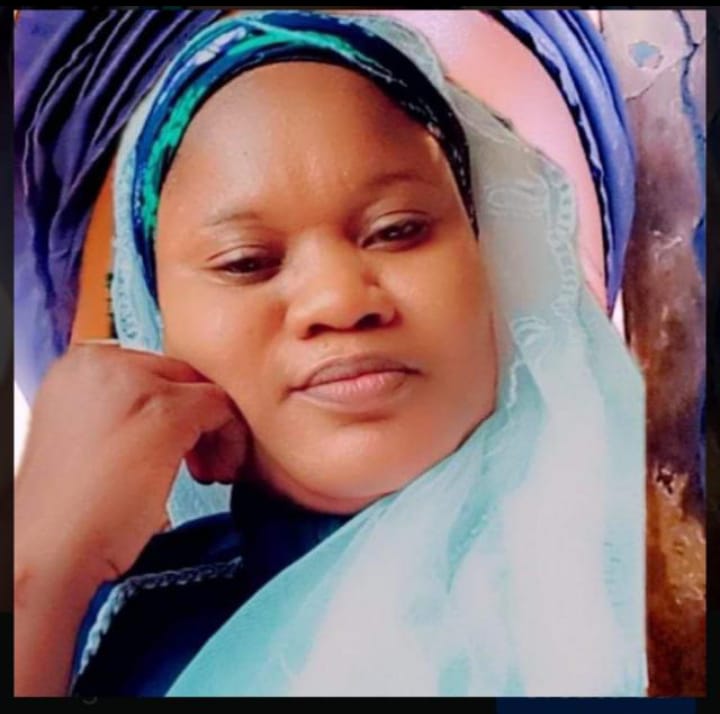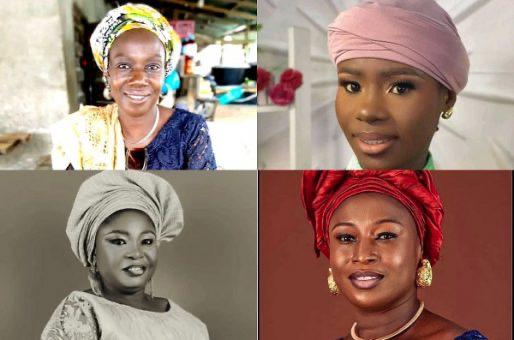WHEN THE DRUMBEAT CHANGES FOR WOMEN. By Falilat Oreoluwa Dikko

WHEN THE DRUMBEAT CHANGES FOR WOMEN

Five female council leaders gone in two months, a painful reminder that celebrating women’s progress must go hand in hand with protecting their lives.
For month’s, we have danced to the sweet melody of women’s achievements. From the kitchen to the cockpit, from the classroom to the council chambers, women have risen like the morning sun, dispelling the darkness of doubt that once clouded their capabilities. We have clapped, we have sung, we have written countless tributes to the brilliance of women who dared to step into spaces once stamped “men only.” And rightly so because when women rise, societies rise with them.

Think of the young girl who now dreams of becoming a pilot because she saw Captain Chinyere Kalu fly the Nigerian skies. Think of the daughters who chase football dreams because the Super Falcons lifted African trophies time after time. Think of the countless engineers, doctors, judges, entrepreneurs, and politicians who are no longer exceptions to the rule, but proof that the rule itself has changed. Women are not just joining the race; they are sprinting, sometimes overtaking men on the same track. Truly, the saying rings true: what a man can do, a woman can do and often with a touch of grace.
But just as we celebrate, life sometimes plays a cruel drumbeat that unsettles the dance. In Lagos State today, that unsettling rhythm has echoed too loudly to ignore. Within the short space of two months, we have buried not one, not two, but five women in the corridors of grassroots leadership.
The roll call is painful: Oluwakemi Rufai, councillor in Ibeju-Lekki; Zainab Shotayo, councillor and chief whip in Odi-Olowo/Ojuwoye; Princess Oluremi Nutayi Ajose, vice chairman of Badagry West; Basirat Mayabikan, councillor in Shomolu; and most recently, Mrs. Khadijat Adebimpe Akintola, council manager of Coker-Aguda and chairperson of all council managers in Lagos. Five women, five candles blown out in quick succession.

Is this not strange? When rain falls once, we call it weather. When it falls repeatedly in the same place, we begin to ask if the gods are trying to pass a message.
For years, we have fought for women to have a seat at the table of power. Now that they sit, must the chair also carry the weight of untimely exit? How can it be that in a state of millions, we lose five women leaders in barely eight weeks? Should we dismiss it as mere coincidence, or should we pause, reflect, and question?
It is easy to say “natural causes.” But is it truly natural when a pattern repeats itself so closely? Is it not written in our proverbs that “when the drummer changes the beat, the dancer must also change the steps”? Maybe this is the moment we must ask: are our women leaders overburdened? Are their health and welfare being properly monitored? Are they carrying silent loads that society does not see, until their bodies can carry no more?
Let us remember that women in politics are not just leaders; they are wives, mothers, breadwinners, peacemakers, and often the backbone of their extended families. The double, sometimes triple roles they play come with invisible stress. Yet society claps for their success but rarely checks on their well-being. We quote proverbs like, “If you train a woman, you train a nation.” But when the woman is weary, who trains her? When she falls, who lifts her?
These deaths force us to confront uncomfortable truths. Behind the glamour of swearing-in ceremonies and the titles of office lies the reality of pressure — long hours, endless demands, and the scrutiny of a public that is quick to criticize but slow to empathize.
As a society, do we only know how to celebrate women when they break records, but stay silent when they break down? Do we only clap when they soar, but look away when they struggle? Do we value the crown on their heads more than the life in their bodies?
We cannot afford to reduce these tragedies to statistics. Each name represents a woman whose journey inspired others. Each face carried dreams not just personal dreams, but dreams for their communities. Each loss is not just a vacancy in office; it is a wound in the fabric of society.
Maybe it is time for Lagos, and indeed Nigeria, to think differently. If we can celebrate women’s entry into politics, then we must also safeguard their journey there. Why not mandatory health checks for public officials? Why not better welfare packages that address mental and physical stress? Why not a system that supports women leaders not just to rise, but to thrive and live long enough to fulfill their vision?
The deaths of these five women are not just an attack on families, but on the progress of women itself. Because every time a female leader falls, it sends a subtle message to young girls watching: “Maybe this path is too dangerous, maybe women cannot last here.” And that, my dear readers, is a dangerous message for any society that wants to grow.
So I write with a heavy heart but also with hope — hope that these tragedies will not be swept aside with silence. Hope that leaders, communities, and citizens will see that celebrating women must go hand in hand with protecting them.
We clap when they soar. But when the eagle falls, do we ask why the sky was not kind?
And so, I leave us with questions that burn within me:
What exactly is happening in our councils? Why are our women leaders dropping so soon after their journeys began? Can we continue to call it coincidence, or is there a deeper cry for help we are ignoring?
When the rain refuses to stop, the wise man builds a roof. The question is: are we ready to build one, or will we keep running into the storm, pretending it is not there?
Falilat Oreoluwa Dikko
Author and public affairs analyst,
Writes from Lagos, Nigeria.
01/10/2025
07034484445



